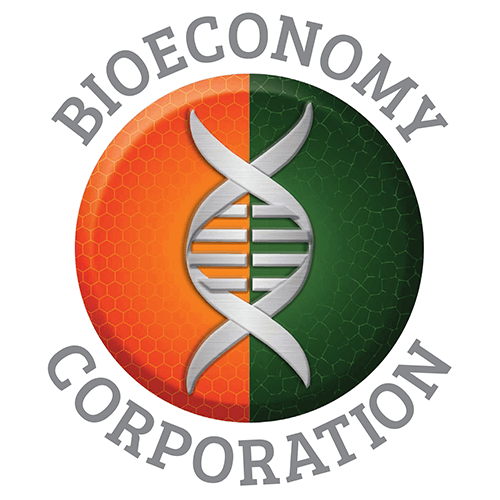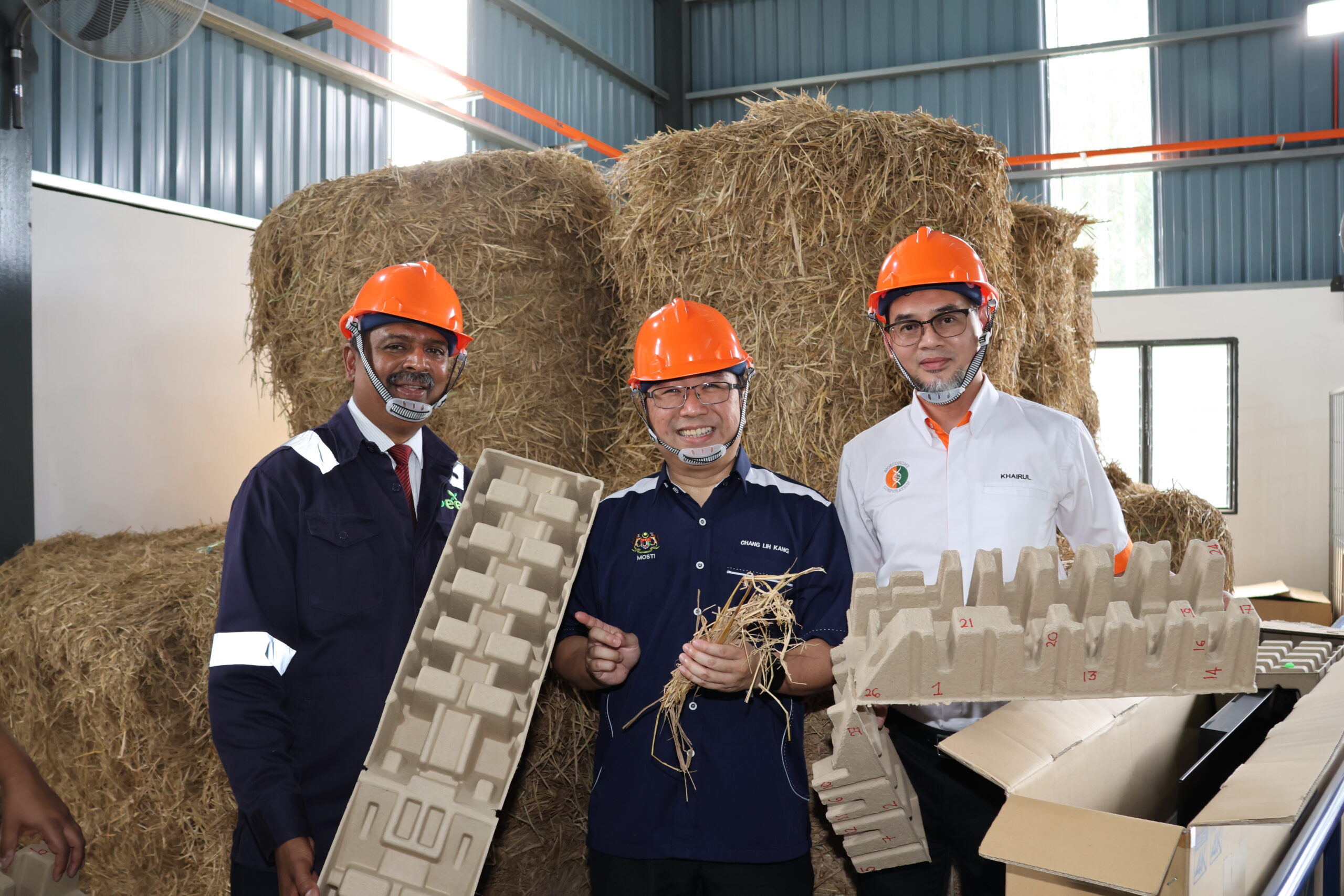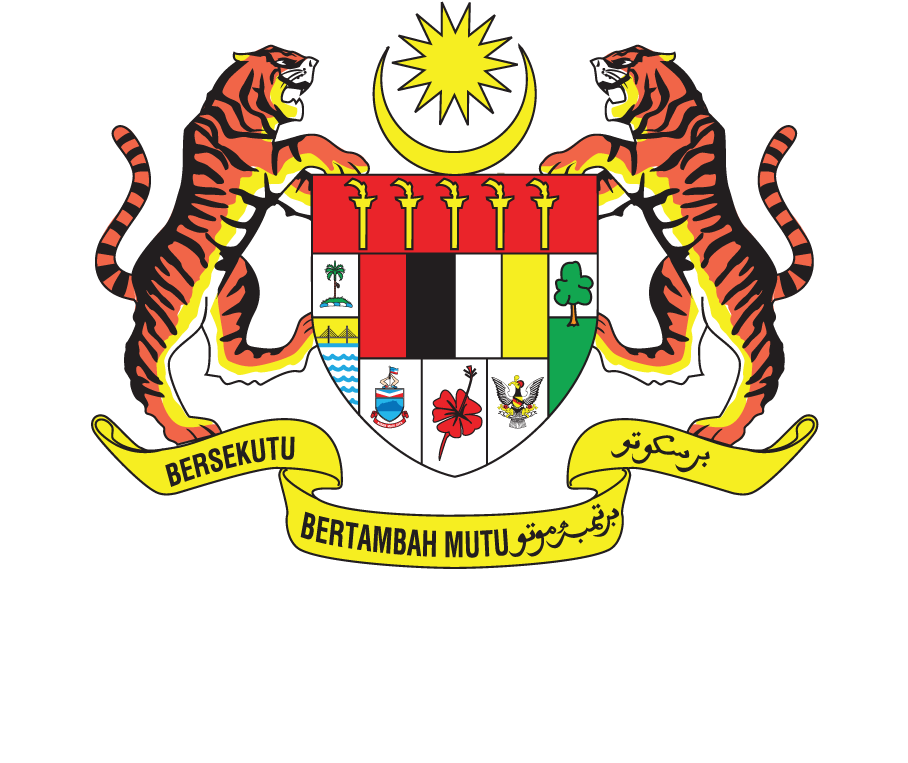Gurun, 5 December 2024 – The production of “green gold,” or biodegradable packaging made from rice straw waste in Gurun, Kedah, is projected to achieve a market value of RM60 million once distributed locally and internationally starting next year.
This production, a result of a public-private partnership between the Malaysian Bioeconomy Development Corporation (Bioeconomy Corporation) and BioNexus Status company Free The Seed Sdn Bhd (Free The Seed), aims to advance the country’s biodegradable industry through the use of biotechnological enzyme processing.
The Minister of Science, Technology, and Innovation, YB Chang Lih Kang, expressed his full support for the production of biodegradable packaging products set to reach local and international markets, including Germany, the Netherlands, Japan, and the United Kingdom, by 2025.
He added that the collaboration has significantly enhanced its value chain, creating additional income opportunities for farmers and local communities.
“To date, 618 farmers have joined this initiative, with the number expected to increase to 3,700 when full operations begin next year.
“Through this collaboration between Bioeconomy Corporation and Free The Seed, farmers in this region are expected to generate additional income of RM3 million annually by 2025 from selling rice straw waste,” he said during his working visit to Free The Seed’s facility here today.
Also present were Bioeconomy Corporation Chief Executive Officer, Mohd Khairul Fidzal Abdul Razak and Free The Seed Chief Executive Officer, Ramaness Parasuraman.
The minister highlighted the immense potential of biotechnology in transforming rice straw waste into “green gold,” playing a crucial role in boosting farmers’ income, creating jobs, driving the circular economy, and supporting environmental sustainability. This aligns with the National Biotechnology Policy 2.0 and the nation’s sustainable development agenda.
“Kedah is now not only Malaysia’s main rice producer but also a hub for processing rice straw waste into ‘green gold’ through biotechnological applications,” he said.
Meanwhile, Bioeconomy Corporation Chief Executive Officer, Mohd Khairul Fidzal Abdul Razak stated that the collaboration is expected to achieve an annual production of 120 million units of biodegradable packaging for the medical, food, industrial, and electronics sectors.
Initially focused on food and healthcare packaging for export, the products have now expanded into new sectors, including local healthcare, the semiconductor industry, and sustainable energy, according to Mohd Khairul.
He also stated that the expansion resulting from this collaboration has created 120 new jobs, 30% of which involve TVET-skilled workers.
“Through industry engagement sessions and access to public and private sector stakeholders, Bioeconomy Corporation has supported Free The Seed in expanding its market reach.
“This support has enabled Free The Seed to increase its production capacity to meet growing market demand across these sectors,” he said.
The circular economy emphasised by the Malaysia MADANI Government not only focuses on the principles of reuse, return, and recreate to reduce waste but also reflects the government’s vision of managing the nation’s resources efficiently and sustainably.
The collaboration between Bioeconomy Corporation and Free The Seed demonstrates the effectiveness of proactive government policies in driving the growth of multinational companies and strengthening Malaysia’s position in the bio-packaging industry.
This initiative, which utilises local bio-based technology from rice straw, also positions itself as a potential carbon credit icon for Malaysia. It aligns with the Sustainable Development Goals (SDGs) and Environmental, Social, and Governance (ESG) frameworks outlined by the Malaysia MADANI Government, ensuring inclusive, sustainable, and competitive development for the well-being and benefit of all citizens.






